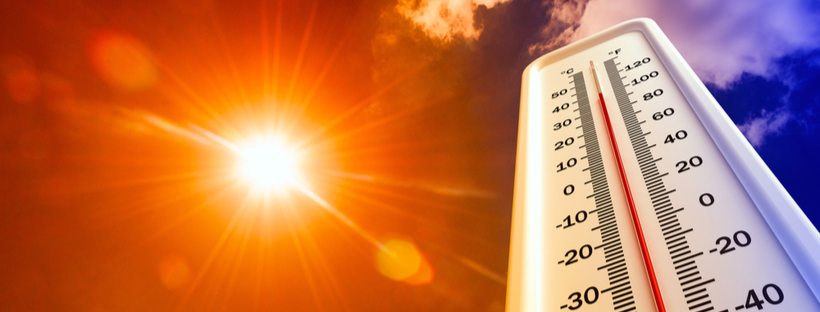The Nystrom & Associates provider consulted for this article is Dr. Karin Ryan, PsyD, LP, Clinic Director, Outpatient Therapist.
Do elevated temperatures get you feeling a little heated? If so, you’re not alone. Research shows that hot weather (especially hot and humid weather) is associated with increased aggression, violence, and anger. This is called the heat effect.
Watch Dr. Karin Ryan on Twin Cities Live as she explains what the heat effect is and how to help mitigate it.
Related: Anger Management & Mental Health
Nystrom & Associates on Twin Cities Live
How Heat Impacts Emotions: The Heat Effect
Winters are known to increase depression. Summer is known to boost our mood or energy but it can also increase irritability, anxiety, and even suicidality. That is because hot temperatures take a toll on our bodies and emotions.
Dr. Karin Ryan explains some of the research behind what is known as the heat effect. “Research shows us that we are more likely to honk our horn if we are hot in our cars, pitchers pitch more aggressively and football players have more aggressive fouls when hot. Our tempers are shorter, and we are less likely to be kind or helpful in high temps.” She adds,
Our bodies are fine-tuned machines and really like to stay around 98.6. When we are in the heat our heart rate and our blood pressure increase. And when it is really hot bodies have a stress response, releasing more cortisol. It also wears us out and makes us dehydrated and exhausted. This bodily state impacts our psychological and emotional state, because our brains receive this stress message from our bodies and that impacts our thoughts and feelings. Our mood becomes more irritable, annoyed, angry, and impatient.
Being hot makes us uncomfortable and that can cause us to be more likely to negatively interpret things. It changes our thoughts to be more hostile.
Related: How Anxiety & Panic Attacks Can Feel in the Body
How to Help the Heat Effect
The first step to helping the heat effect is becoming aware. Having an awareness that when we are hot, we are more likely to be cranky not only helps ourselves but those around us. This knowledge gives us the power to be more mindful and have more control over ourselves. We can anticipate it. We can remind ourselves it will not last forever.
In addition, we can watch for signs of increased agitation and take action earlier. You can catch those irritable thoughts about a co-worker before you snap at them. You can recognize your impatience in traffic before you make an offensive gesture. Or you can tune in to the fact that you are cranky, and that your child is not really being that annoying, you are just already annoyed.
Some more helpful tips from Dr. Karin Ryan include:
- Stop and think before talking or acting.
- Use breathing practices to pause, calm down, and cool down.
- Give others more grace on hot days or high heat by not taking their behavior personally.
- Stay extra hydrated, drinking water.
- Take breaks to get out of the sun and heat.
- Give yourself time to just be still and check in with your body, especially if you are doing any sort of activity or exercise in the heat.
Related: Breathing Exercises for Anxiety & Stress
A Word From Nystrom & Associates
Overall, the heat effect is a force to be reckoned with. Please be sure to take care of yourself physically and mentally when the temperatures have you feeling a little heated. We all react differently to the heat, so keep that in mind as well.
If you’re in need of additional support, talk with us at 1-844-NYSTROM or request an appointment online.
Related: How Mental Health Affects Physical Health
Source: Nystrom & Associates











